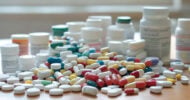A new gene-editing therapy just dropped LDL cholesterol by 69 percent — with a single injection. One shot, permanent effect. Cue the headlines: “Game-changer!” “End of statins!” “Revolution in heart disease!”
Here we go again.
Let’s be clear: I’m not anti-innovation. I’m not against gene therapy. I’m against making the same mistake again and again, just with better marketing and shinier tools.
VERVE-102 is the latest miracle-in-a-vial — a CRISPR base-editing therapy that “silences” the PCSK9 gene in liver cells. That means fewer PCSK9 proteins, more LDL receptors, and much lower LDL cholesterol. Sounds great on paper.
But that’s exactly the problem: it’s all on paper.
This therapy hasn’t shown it prevents heart attacks, strokes, hospitalizations, or death. It doesn’t even have intermediate outcome data, like arterial plaque regression or improved vascular function. All we have is the same old number: LDL-C.
And we’ve been here before.
We watched niacin raise HDL and lower LDL for decades, only to fail spectacularly in outcome trials.
We saw CETP inhibitors raise HDL to the moon — and take billions of research dollars with them.
And now we’re getting ready to pour more money into Lp(a)-lowering drugs — again without outcome data — because, hey, the biomarker moved.
We’re not treating patients. We’re treating numbers.
And while CRISPR is revolutionary, using it to reinforce a 1950s lipid hypothesis is like putting a jet engine on a Model T — fast, impressive, and completely disconnected from where we need to go.
There’s also this: if a gene-edited liver goes haywire five years down the line, we can’t just stop the therapy. It’s not reversible. It’s not benign. And it’s all based on the assumption that PCSK9 is a villain, instead of just a marker in a far more complex story.
Atherosclerosis is inflammatory. Possibly infectious. Likely multifactorial. It’s not just a plumbing problem with bad cholesterol as the sludge.
Until this therapy shows real-world impact — lives saved, MIs prevented, cath labs skipped — we need to hit pause. Not because the science isn’t exciting. But because we’ve already lived the biomarker fantasy, and it didn’t end well.
I’m not buying the same snake oil in a new, gene-edited bottle.
Larry Kaskel is an internist and “lipidologist in recovery” who has been practicing medicine for more than thirty-five years. He operates a concierge practice in the Chicago area and serves on the teaching faculty at the Northwestern University Feinberg School of Medicine. In addition, he is affiliated with Northwestern Lake Forest Hospital.
Before podcasts entered mainstream culture, Dr. Kaskel hosted Lipid Luminations on ReachMD, where he produced a library of more than four hundred programs featuring leading voices in cardiology, lipidology, and preventive medicine.
He is the author of Dr. Kaskel’s Living in Wellness, Volume One: Let Food Be Thy Medicine, works that combine evidence-based medical practice with accessible strategies for improving healthspan. His current projects focus on reevaluating the cholesterol hypothesis and investigating the infectious origins of atherosclerosis. More information is available at larrykaskel.com.

















![AI censorship threatens the lifeline of caregiver support [PODCAST]](https://kevinmd.com/wp-content/uploads/Design-2-190x100.jpg)
